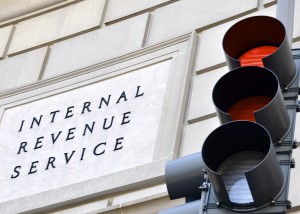Founders typically purchase stock pursuant to restricted stock purchase agreements that allow the company to repurchase “unvested” stock upon termination of employment. Similarly, employees may want exercise options subject to the company’s ability to repurchase “unvested” shares upon termination of employment.
Internal Revenue Code Section 83(b) election Code allows employees to change the tax treatment of a restricted stock grant. Normally, employees pay regular income tax when the stock vests (the restrictions lapse) and no tax when the restricted stock is granted.
The Section 83(b) tax election allows employees to pay income tax on the initial grant instead of paying tax when the stock vests. More specifically, they pay tax on the difference between the amount they paid and the Fair Market Value (FMV) of the stock. Typically the purchase price of the stock and the Fair market value of the stock are the same.
If the employees file a Section 83(b) tax election, they end up paying no tax at the time of purchase because the purchase price for the stock and the fair market value are the same. They also pay no tax when the stock vests in the future. They will only pay capital gains tax when the stock is sold. Keep in mind Section 83(b) election only applies to restricted stock and it only deals with the recognition of income on stock that has restrictions that lapse.
Therefore the tax benefits of a Section 83(b) election include starting the one year long term capital gain holding period and freezing ordinary income (or alternative minimum tax) recognition back to the purchase date of the stock.
If the employee does not make the Section 83(b) election, then he or she may have income at the stock vesting date. The income will be substantial if the value of the shares increases substantially between the grant date and the vesting date.
Let’s use an example to illustrate the effect of making or not making the Section 83(b) election. We’ll consider an employee that is subject to a 4 year annual vesting schedule:
At formation, the company stock is determined to have a FMV of $0.001 per share and he is granted 100,000 shares. The firm grows and the FMV increases to $.10 in Year 1, $1.00 in Year 2, $10 in Year 3, $100 in Year 4. Assume a 40% regular income tax.
Initial Stock Purchase: $100
Value of stock that vests in Year 1: $2,500
Value of stock that vests in Year 2: $25,000
Value of stock that vests in Year 3: $250,000
Value of stock that vests in Year 4: $2,500,000
Section 83(b) election timely filed
Taxes Due at Purchase: $0
Taxes Due at Vesting Intervals: $0
At the end of the 4 years, the founder owns all of his stock outright and has paid no taxes on it. Should he sell the stock, he would be subject to long-term capital gains taxes.
No Section 83(b) election made
Taxes Due at Purchase: $0
Taxes Due at Vesting Intervals: Y1: $1000, Y2: $10,000, Y3: $100,000, Y4: $1,000,000
Total taxes paid: $1,111,000
And these taxes had to be paid before the company ever had a liquidating event since the employee never received cash for his stock. Even worse, if the company collapses in Year 5, the employee will have paid over $1.1 million in taxes and never received any cash for his stock.
In order for a Section 83(b) election to be effective, the individual must file the election with the IRS prior to the date of the stock purchase or within 30 days after the purchase date. There are no exceptions to this timely filing rule. The last possible day for filing is calculated by counting every day (including Saturdays, Sundays and holidays) starting with the next day after the date on which the stock is purchased. The official postmark date of mailing is deemed to be the date of filing.
If you have any questions about filing a Section 83(b) tax election please contact Gregory J. Spadea of Spadea & Associates, LLC at 610-521-0604, located in Folsom, Pennsylvania.








